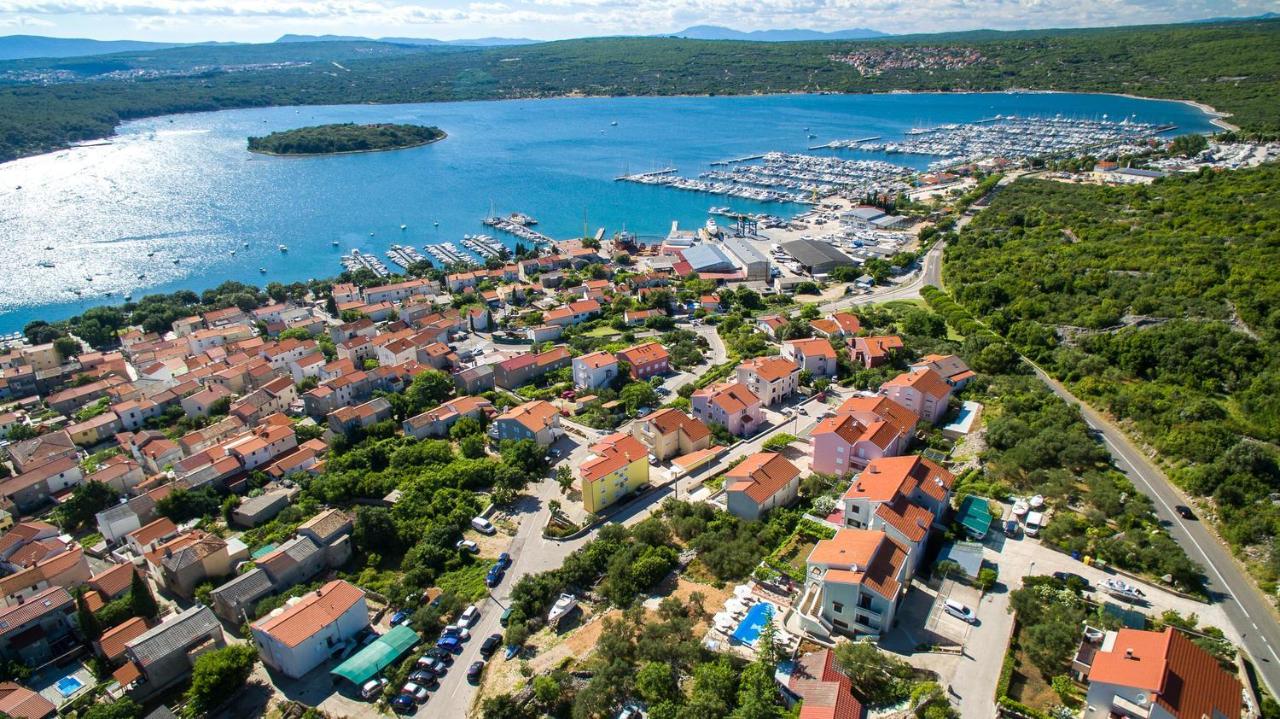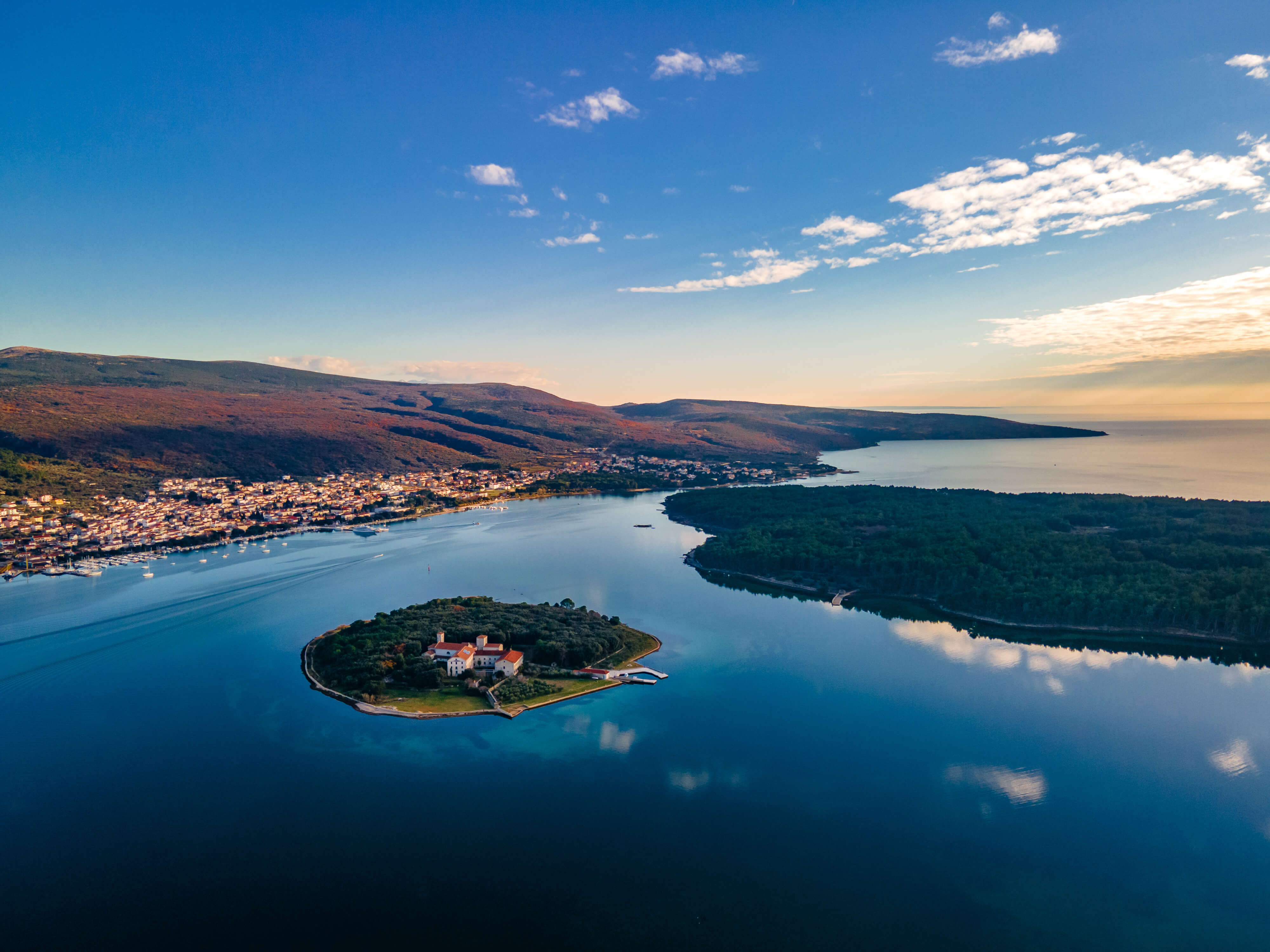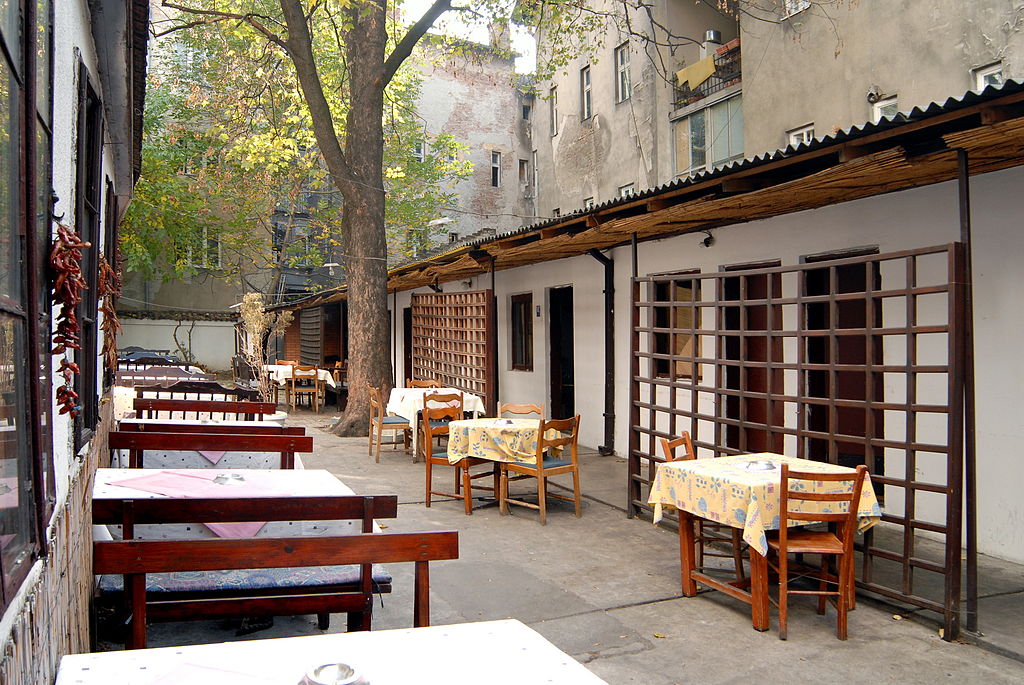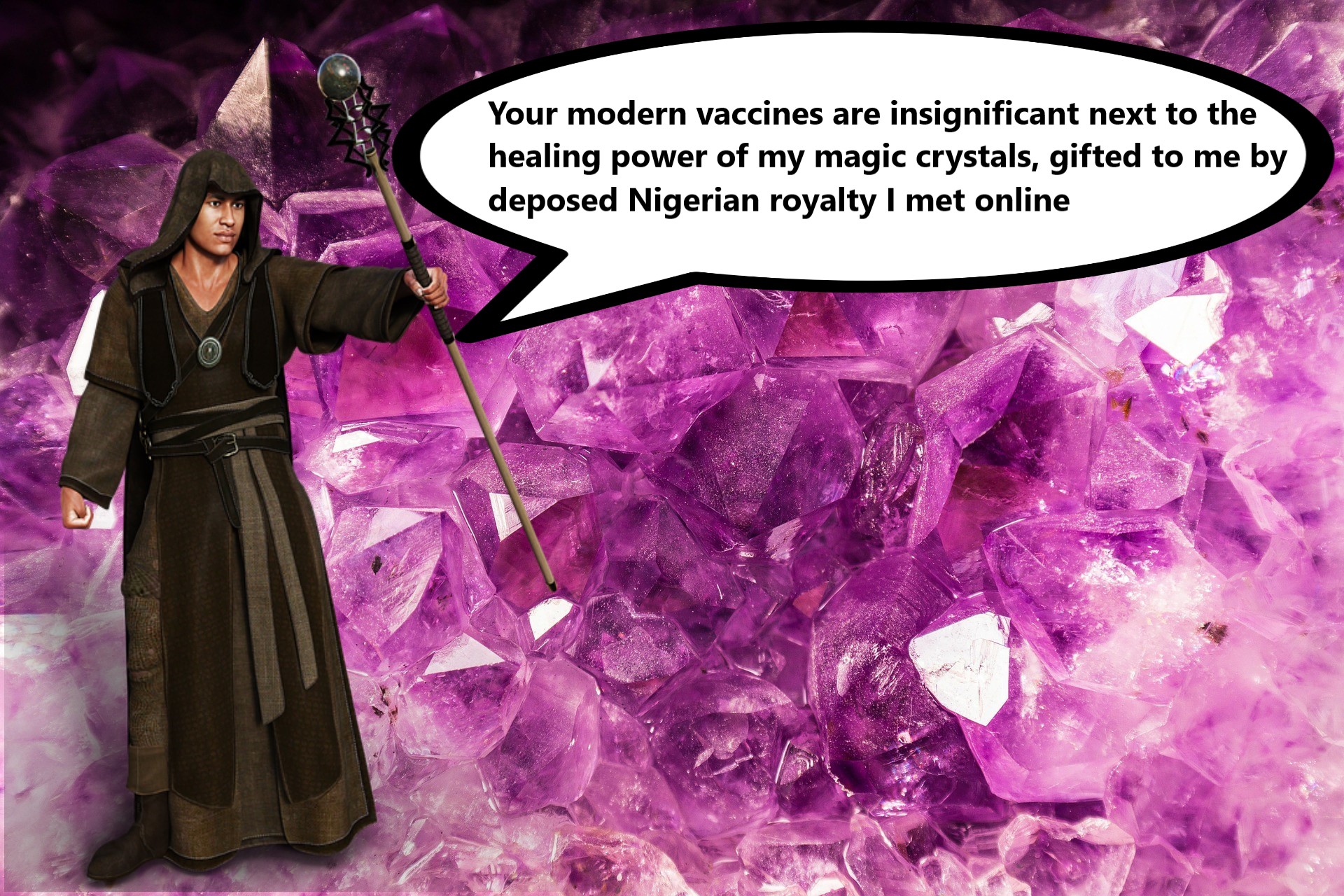Punat Tourist Board Provides AntiCOVID Safety Kit for Renters
July 27, 2021 - The pandemic continues to be a threat to the tourism industry in Croatia, and in an effort to preserve the excellent number of tourists this summer in their city, the Punat Tourist Board on the island of Krk has distributed AntiCOVID safety kits for renters in the locality.
HrTurizam reports that the Punat Tourist Board has provided an "AntiCOVID Safety kit" package to promote health and safety in this unpredictable time of the epidemic.
The safety kit was prepared in accordance with the Manual for Safe Stay in Croatia according to the recommendations issued by the Ministry of Tourism and Sports.
''In order to make it easier for our renters to choose to buy this product, we will distribute 2 AntiCOVID Safety kit packages to renters'', says Branko Karabaić, director of Punat Tourist Board and invites renters to personally pick up two free copies of the package in the tourist community.

The town of Punat has one of the most beautiful marinas in Croatia: the Marina Punat, also referred to as the 1st nautical address in Croatia. (Photo: Apartmani Manzoni)
"AntiCovid Safety kit" contains three products: Disposable three-layer medical face mask without filter - Type II, disposable protective latex gloves with powder, and antiseptic wet wipe for hygienic hand disinfection.
Commendable action of TZO Punat, which means a lot for the renters and the tourism sector in the town. The perception of security this year plays the most important role, of course with the precondition of a stable epidemiological situation.
Punat is a small town situated on the east coast of Puntarska draga (Puntar Bay), on the south coast of the island of Krk, only 8 km from the Town of Krk. The economic base once comprised agriculture, olive growing, fishing, sheep breeding, and shipbuilding, especially with wood; presently, the prevailing activity is tourism, especially nautical tourism, in addition to trade. The former activities that survived are fishing and sheep breeding, and almost every family is engaged in olive growing.

The town of Punat, on the eastern coast of the island of Krk. (Photo: F. Karabaić/F Media)
Thanks to the marina's year-round operation and events such as the Croatia Cup regatta and Olive Days, Punat receives foreign visitors even after the end of the season. Improved beaches and parks, rich vegetation, hotels, guesthouses, holiday houses, the Punat Marina – home port to all those enjoying the beauties of the Croatian sea and islands - sports and recreation options (sailing, diving, skiing, windsurfing, tennis, aqua park, miniature golf, hiking, boccie), homemade food offered in numerous taverns and restaurants, and the cultural offer (especially on the islet of Košljun) make Punat a highly visited tourist center.
Recall, tourists who have stayed at least three nights in commercial accommodation will have more favorable antigen tests. The Ministry of Tourism and Sports has ensured the distribution of one million and 81 thousand antigen tests in regional public health institutes throughout Croatia, which are available to domestic and foreign tourists. More favorable antigen tests are available for tourists who have stayed at least three nights in commercial accommodation.
The Ministry of Tourism and Sports appealed for the price to be uniform in all counties and for a minimum estimated cost to be charged, which should not exceed 75 kuna.
For more on Travel, follow TCN's dedicated page.
For all you need to know about coronavirus specific to Croatia, including travel, border, and quarantine rules, as well as the locations of vaccination points and testing centers across the country, make sure to bookmark our dedicated COVID-19 section and select your preferred language.
What Kind of Life Awaits Croatian Anti-Vaxxers Who Refuse Vaccination?
December 29, 2020 – The arrival of COVID-19 vaccines in Croatia has been met with much relief by many people. But, not everyone is happy. Conspiracy theorists - those who favour disreputable sources and 'whispers on the wind' to real science - are reticent, some even angry. So, what kind of life awaits Croatian anti-vaxxers who refuse to take the vaccine?
The people who inhabit the lands now known as Croatia have a long history of being pushed around. For this, they cannot be blamed. Greatly outnumbered by the occupying armies of some of the most powerful empires of all time - the Romans, Venetians, Austro-Hungarians and Ottomans - their rebellions against such overlords have been relatively small in number. Their default setting has been to visit the kafana at the end of the day and moan, grumble, gossip - perhaps even plot - against those who make their lives disagreeable.
Croatia was finally freed of its last imposing masters over two decades ago. But, true to form, the grumbling in the kafanas has continued. Except, now that the kafanas are all closed in response to Coronavirus, the moaning has moved almost exclusively to the internet. And, it has reached a shrieking pitch.
The arrival of COVID-19 vaccines in Croatia has been met with much relief by many Croatians. The news of the first vaccinated citizen, followed by the first vaccinated healthcare workers, was also well received. You can tell this from the overwhelmingly large amount of 'likes' such news generates when posted to social media. These warm welcomers of good news in Croatia could be best described as the silent majority. And, in the same way most Croatians lay subdued for lifetimes under bullying empires, this silent, sensible majority is drowned out by the deafening vitriol of the unhinged within the comments sections underneath.
These arch-moaners appear in the comments on most issues, railing against the increasingly modern ways of the world. On the issue of Coronavirus and the incoming vaccines, it is the Croatian anti-vaxxers who are angrily dominating the discourse.
It appears near pointless to debate with them. They are not ones for science, facts nor reasonable debate. Not for them are the reports of scientific journals, the BBC, The New York Times, The Guardian, Al Jazeera, or The Washington Post. Instead, they cite the most spurious of sources – a website nobody else has heard of, a document written by a friendless doctor from the Texas farming community who has a curiously photoshopped profile picture, a Youtube video made for the same price as a hamburger and narrated by a 17-year-old from the outside toilet. There's no point telling them that the vaccines coming onto the market were actually designed back on January 13, just two days after the Coronavirus genetic sequence had been made public and that it has taken until now to produce them, due to stringent testing on their safety. No. Because for Croatian anti-vaxxers, whispers on the wind, the horoscopes, crystal ball of the fortune-teller and the inescapable stare of Braco are just as reliable - if they're telling you what you want to believe. For whichever lunatic theory you want to adopt, you can look online and you'll be sure to find some crackpot to back it up. The internet is the great leveller for Croatian anti-vaxxers as well as everywhere else - a place where deposed Nigerian royalty who want to put money in your bank account have just as much credence as an 80-year-old media title with a blemishless reputation.
Of course, while life is too short to even debate with anti-vaxxers in Croatia or anywhere else, that's not to say they are undeserving of sympathy. In our recent interview with a doctor working on the Coronavirus frontline in a Croatian hospital, they generously raised an interesting defence of the tin-foil hat brigade - “It's not always the content of the conspiracy theory that appeals to these people as much as it is their inability to accept facts – the truth – because they have little faith in the authorities that are telling them.”
Finding fault in authorities is far from unique to Croatia. Yes, there is a certain amount of kafana moaning and grumbling all over the world, and often for good reason. Politicians are more than aware of this. And, in an era of widespread voter apathy and low voter turnout, where yet another silent majority has the potential so easily to change the names of those who govern, this is exactly why politicians will abstain from making the Coronavirus vaccines mandatory. With things as they currently stand, it is near inconceivable that Coronavirus vaccines will be made compulsory in Croatia or in any other western democracy. Good news for Croatian anti-vaxxers? Well, not quite, because it is highly likely that the private sector will be among the greatest of persuaders for vaccination. It is not unthinkable that we are about to enter a wholly new two-tiered society – the vaccinated and the unvaccinated. And signs of what that life might look like for Croatian anti-vaxxers are not good. They are not good at all.
“Vaccination could become one of the measures that would make it possible to come to events,” Stefan Breitenmoser, general manager of the Professional Association of Swiss Organizers of Concerts, Events and Festivals, told Sonntags Blick in the past week. In Switzerland, vaccination began on Wednesday and it is free. It is not only the entertainment events industry that is considering the measure - the Swiss Football League similarly said it is giving it serious consideration. Professional sports and the events industry have lost billions during the pandemic. The 2021 Olympics hangs on a knife-edge in regards to accepting audiences into its stadiums – it has already been delayed by a year. It is highly conceivable that access to all large events in future will be dependent on proof of vaccination. The National Stadium in Japan was due to host some of the key events of the 2020 Summer Olympics. The whole event has been delayed until summer 2021, in response to the pandemic © Arne Müseler
The National Stadium in Japan was due to host some of the key events of the 2020 Summer Olympics. The whole event has been delayed until summer 2021, in response to the pandemic © Arne Müseler
In an interview on N1 television in Croatia over recent days, epidemiologist Branko Kolarić - a member of the Scientific Council of the Government of the Republic of Croatia - echoed similar thinking. He stated that a list of the vaccinated will be carefully maintained, most likely through some kind of e-documents, and although vaccination will not be mandatory, vaccination will bring some benefits - such as air travel, group gatherings and attendance of concerts and festivals. You are surely not going to see police or soldiers checking your vaccination status at the entry to a dance music festival in Dalmatia. But, it is highly likely that event organisers will insist on proof of vaccination before granting entry. Even if they don't wish to, it is more than conceivable that they would not be granted the necessary licenses nor insurance without assuming such a position.
Another industry that has lost billions in the pandemic is the travel and tourism sector. Little surprise then to have found budget airline Ryanair launching a new campaign of 'Jab and go' over the last few days. The suggestion is crystal clear – get vaccinated, you can come on our planes, we'll allow you to travel. Ryanair will certainly not be the last airline to assume responsibility for vetting passengers' vaccination status. Croatian anti-vaxxers had better be really happy to be here, because international borders may well be permanently closed for them while they remain unvaccinated.
So, a life with no spectating at big sports events, no more large concerts or music festivals and no more international travel is what seems to be just around the corner for Croatian anti-vaxxers. Sounds harsh, unpleasant. But what if it extends to libraries, schools or even hospitals? We don't yet know anything concrete about the lower tier of existence Croatian anti-vaxxers may choose to dwell in. But, it's not where I want to live. Perhaps they'll even be forced to drink exclusively in their own anti-vaxxer kafanas? For sure they'll be easy to identify – they'll be the ones from which the loudest moans are coming.
The views expressed in this article are solely those of the author and are not necessarily shared by Total Croatia News
New Framework of Anti-COVID Measures to be Specified This Week
ZAGREB, Dec 14, 2020 - Interior Minister Davor Bozinovic, who is at the helm of the Croatia's national coronavirus crisis management team, said on Monday that the team would hammer out a new framework of anti-COVID measures this week.
"Intensive talks are underway, consideration is given to everything," the minister told a news conference in Zagreb.
This week some concrete answers will be given to the questions what can be done to make sure that coronavirus numbers start declining, Bozinovic said announcing more precise measures, while answering the question if passes could be expected.
He said that he could understand that all would like to see the predictability of moves.
I must underscore that some countries have announced the easing of the restrictions in this period only to make them stricter. Some countries have announced tougher restrictions but eventually eased them, he said in his comment on predictability.
Council: Anti-COVID Measures Appropriate and Proportional to Threat
ZAGREB, November 6, 2020 - Prime Minister Andrej Plenkovic said on Friday that the government's scientific council had assessed that the current measures were proportionate to the threat of the spread of coronavirus.
"We have ascertained that there is a very clear common denominator that the measures we are taking are appropriate and proportional to the threat that the epidemic currently represents to the health of our citizens," Plenkovic told reporters after a meeting of the scientific council in the government.
He underscored that if necessary, the council would recommend further measures while the National Civil Protection Authority, that is the COVID-19 crisis management team, would ramp up the current measures.
Council's common stance: No lockdown or curfew
Plenkovic said that it was the common stance both of the government and the scientific council that a complete lockdown will not be introduced nor a curfew, reiterating that that "was never on the cards."
"We assessed that the overall fight against Covid-19 until now was good. It is good that we can see that the dynamics of the infection over the past few days has decreased significantly compared to the preceding weeks," said Plenkovic.
Asked whether anyone in the scientific council had suggested more stringent measures, the prime minister said that a margin existed to further sharpen measures and that the government was open to anything that could slow down the spread rate 0f COVID-19.
In response to reporters' claims that oncology patients in some hospitals will not be receiving their medication due to the debt to drug wholesalers, Plenkovic said that the budget revision is in the parliament and as soon as it is adopted certain funds will be paid to wholesalers but also that he has instructed Health Minister Vili Beros to investigate the situation.
"He has been in contact with the relevant health institutions today. I don't believe that that will be reflected in the broader context. If a shortage of a certain medication has occurred, I think that is more an exception than the rule in the health system," he said.
Referring to claims that numerous doctors are sending dramatic messages and that the health system seems on the verge of caving in to the epidemic pressure, the prime minister said that Minister Beros was talking with doctors right at this moment and that everything was being done to improve the quality and preparedness of the entire health system.
"The thing that is good and we spoke about that - is that a series of professions within the public healthcare system will additionally be engaged with a strong motivation to care for the health and welfare of our citizens," added Plenkovic.


